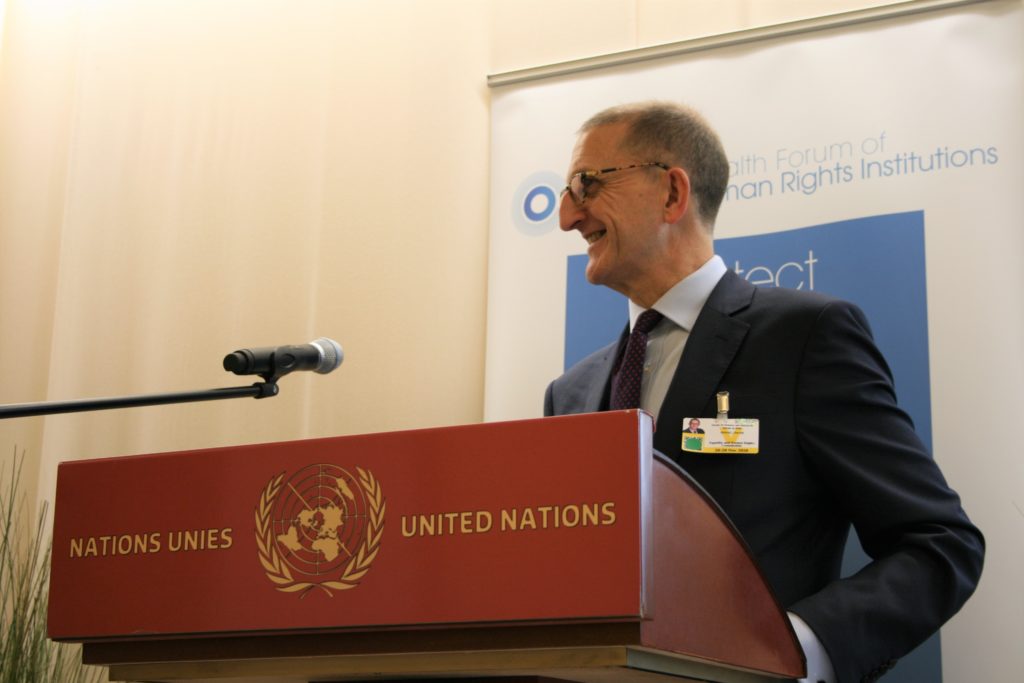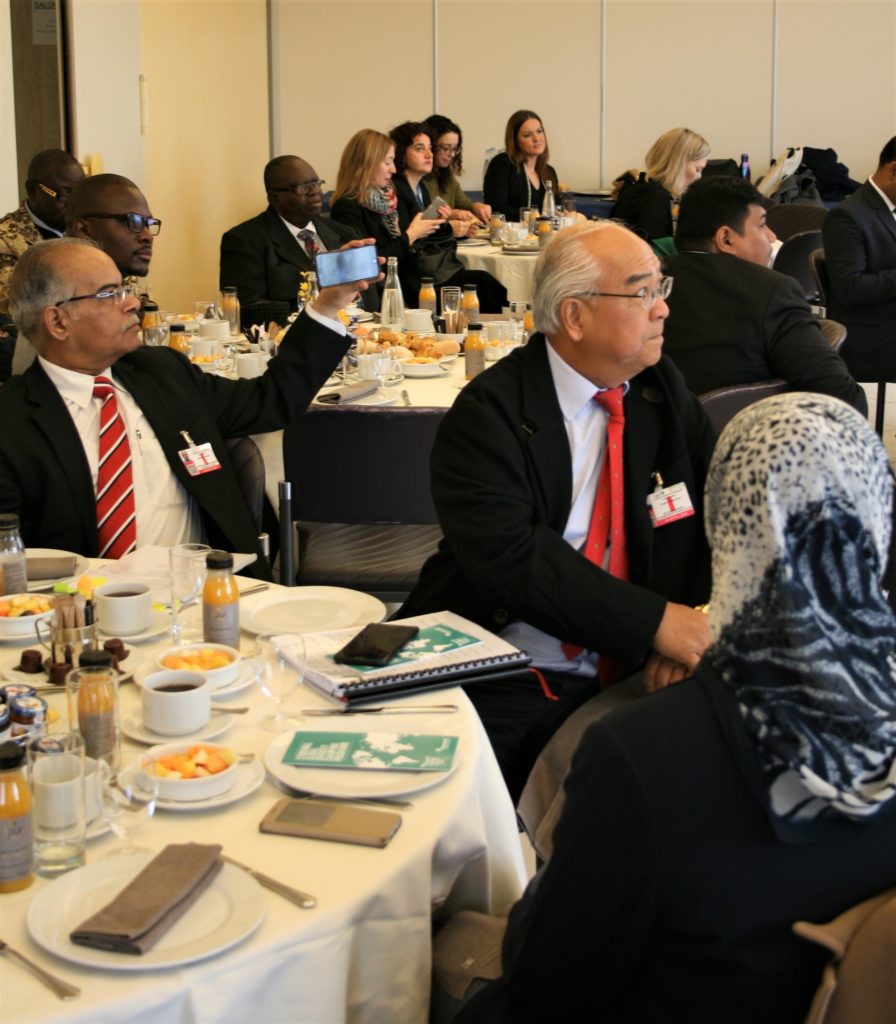David Isaac: Collaboration is Key to Advancing SOGI Rights

Business, NHRIs and NGOs are all important actors in delivering change to promote human rights for everyone. By combining all our expertise and influence, I am confident that we can do more to influence the continued development and implementation of human rights across the globe. At the UN Forum on Business and Human Rights last week, I was privileged as Chair of the Commonwealth Forum of NHRIs to host a breakfast reception to bring business, NGOs and NHRIs together to discuss how we can work together to advance Sexual Orientation and Gender Identity (SOGI) rights.
Business holds huge power to drive change. In an increasingly globalised economy it’s clear from the existing work of some major corporates that business can and does already use its influence to advocate for human rights. This is an excellent place to start but it’s clear that there is still more to be done – and we need more businesses to get on board. The good news is that the wider business community is increasingly recognising that respect for human rights is good for business as well as the right thing to do. Having a good track record of supporting human rights is important for a company’s reputation, for building partnerships, and retaining clients, customers and staff. Prioritising human rights is therefore the smart thing for businesses to do.
I am confident that there is a real possibility that we can begin to move beyond rhetoric and actually change policy and practice
The remit of NHRIs means that we operate in a different way to business. We are experts in human rights and through our engagement with civil society, parliaments and rights-holders, we are uniquely positioned to understand human rights issues in our respective jurisdictions. We are also well positioned to provide advice and guidance on the complicated factors which lead to abuses of human rights. These are vital insights that can support other actors, such as business and NGOs, to be effective in promoting human rights. When we work together there can be no doubt that we can all achieve much more.
Our discussion focused on how we can use our distinct strengths to advance human rights relating to SOGI rights – especially in Commonwealth countries. Many lesbian, gay, bisexual, transgender and intersex people from all over the world repeatedly and systematically have their human rights violated. They experience discrimination, torture, execution, and an inequality in access to services. Sadly we have a long way to go to ensure every LGBTI person anywhere in the world can be guaranteed these basis human rights.
Following a discussion that included views from Google, Stonewall and the Chair of the Bangladesh NHRI, I was really heartened to hear the real commitment of NHRIs, business and NGOs to tackle these challenges head on. By combining the influence and commitment of business with the expertise of NHRIs, and the local knowledge of NGOs, I am confident that there is a real possibility that we can begin to move beyond rhetoric and actually change policy and practice. There are various ways of achieving this outcome – by both hard and soft approaches – but a collective ambition to deliver change is fundamental.
Given the appetite to drive change that we witnessed at our UN breakfast session, I’m keen that the business community, NGO sector and NHRIs reach out to each other to begin more detailed dialogue. We need to use each other’s insights, contacts and determination to advance human rights for LGBTI people. We all attended the UN conference because we believe in driving change. Let’s pool our collective power to make a real difference.
